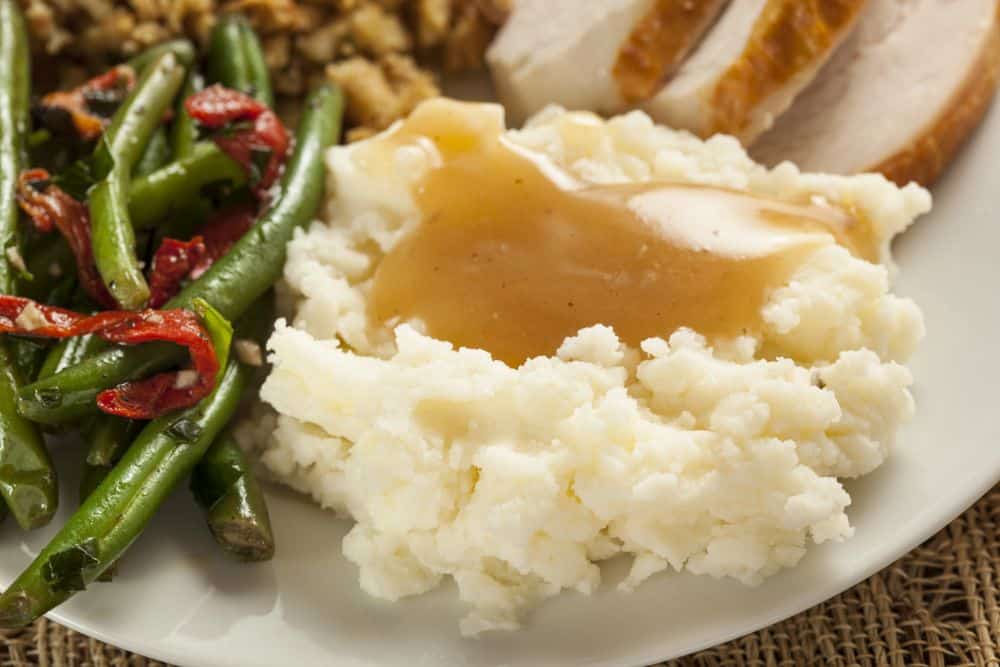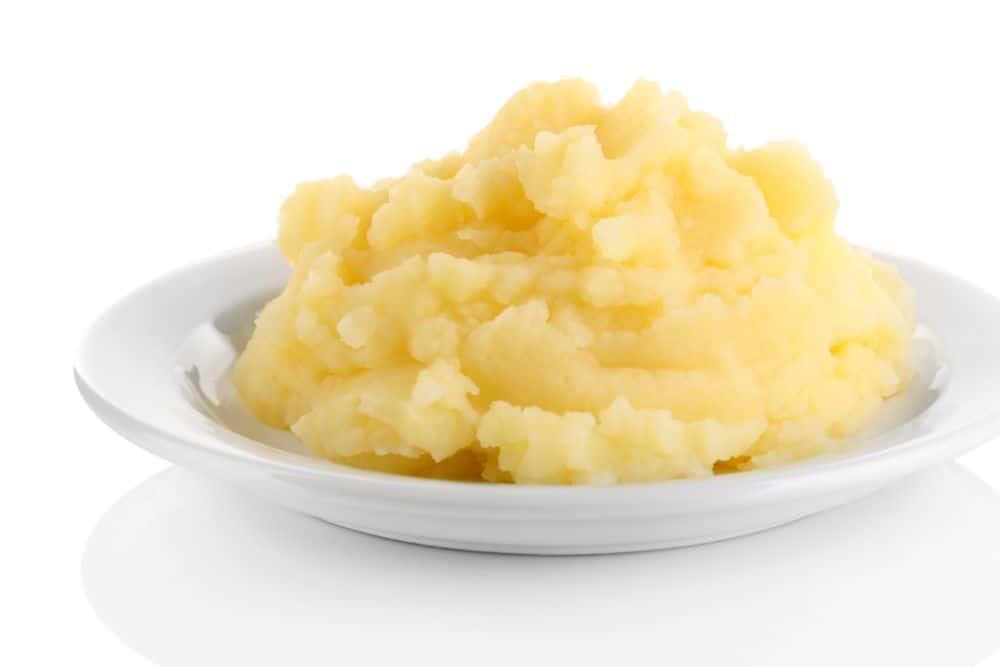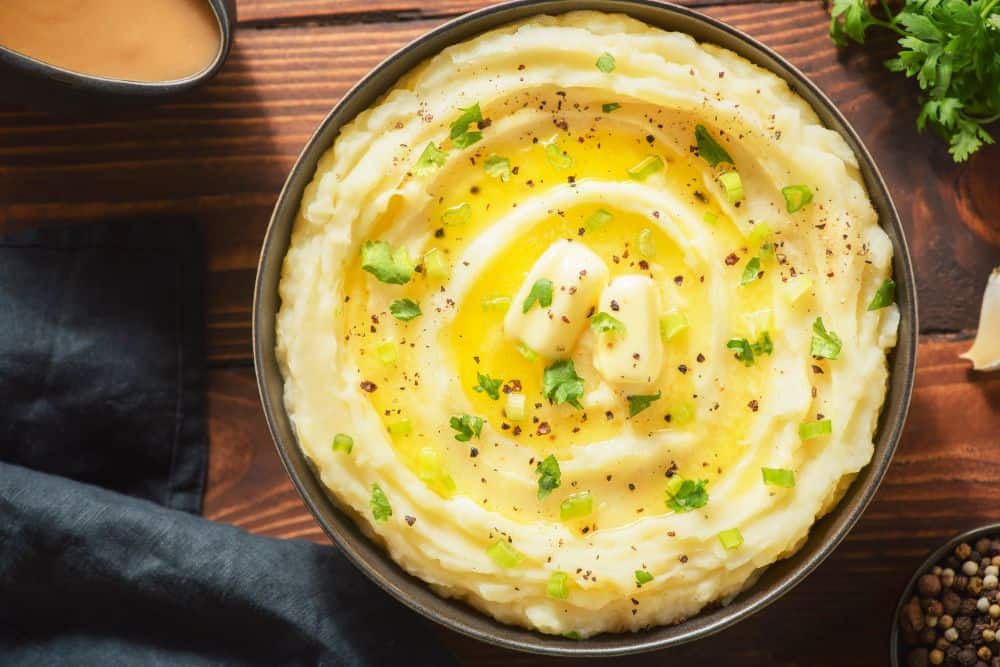Everyone loves a good serving of mashed potatoes. They are one of the most versatile side dishes you can serve, and you can flavor them with various ingredients. Butter, garlic, herbs, or cheese are only some delicious flavors you can add to your mashed potatoes. Typically, people will make more mashed potatoes than they will eat.
Your supper is finished, and you are looking at a bowl of leftover mashed potatoes. It’s a shame to throw out perfectly cooked potatoes, but how long do mashed potatoes last - what is their shelf life? We will discuss the best ways to reuse your cooked mashed potatoes.
Cleaning the kitchen after meals is not a chore that most people enjoy. Leaving food out at room temperature for too long can cause bacteria to grow, which can cause food poisoning. Homemade mashed potatoes should not be left out longer than two hours. Mashed potatoes containing milk, butter, or other dairy products should be refrigerated as soon as they cool.
You can keep leftover mashed potatoes in the refrigerator for up to five days. If you have refrigerated and stored them promptly, you will have some meal prep done for the following work week. It is best to remember that their shelf life will vary depending on the ingredients you have added, and dairy products will significantly shorten their shelf life.

Your Leftover Mashed Potato Dish is Generally Good for 3-5 Days in the Fridge
Many are unaware that you can freeze mashed potatoes, which will keep for up to twelve months if they are correctly stored.
Instant mashed potatoes are made by adding water and milk to dehydrated potato flakes. You can make a serving of mashed potatoes quickly with minimal effort. Making instant potatoes doesn’t mean you can't get creative. You can experiment with many herbs and spices. You can keep leftover instant mashed potatoes in the refrigerator for up to five days.
You can also freeze leftover instant mashed potatoes. Line a baking sheet with parchment paper. Portion the potatoes onto the baking sheet, and then freeze. When the potatoes are solid, its best to put them in a plastic bag and remove any air. When you freeze your potatoes in small portions, you can take them out and thaw what you need for a meal.

Delicious Mashed Potatoes on a Plate
You can also buy prepackaged mashed potato sides like Bob Evans. This company states that their mashed potatoes will keep in the refrigerator for up to seven days. Remember that food needs to be stored in airtight containers to prevent the growth of bacteria, and moisture must be kept out of the container. You can also freeze the leftover potatoes.
Freezing a product like Bob Evans mashed potatoes will likely affect the potatoes' overall taste and texture. You should ensure that the potatoes are cooled before you put them in the freezer. Portion the potato into freezer bags or airtight containers, and just like any other potatoes, remove any air before placing them in the freezer.
Bob Evans' mashed potatoes should not be frozen longer than three months. You will have to place the potatoes in the refrigerator overnight to thaw. Reheat them slowly, so their texture and taste are not affected.
A Bob Evans Meal Including Mashed Potatoes
Remember– you can only reheat frozen mashed potatoes once. That means you’ll have to throw out any leftovers from your leftover mashed potatoes. In short, it’s never really a good idea to keep leftovers from leftovers.
If you have eaten bad mashed potatoes, there’s a possibility you’ll get sick. When mashed potatoes have been improperly stored or stored for too long, bacteria and pathogens can develop, leading to salmonella, listeria, botulism, and staphylococcal food poisoning.
You’ll know if the potato leftovers were bad within hours of consuming them. Food poisoning will present quickly. Vomiting, nausea, and stomach cramps are typical symptoms of food poisoning and can vary from mild to severe. When you suffer from food poisoning, you should drink lots of liquids to prevent dehydration.
The good news is it won’t last forever, and next time, you’ll know!
Potatoes are a staple that most people have in their kitchen. It is essential to recognize when your potatoes have spoiled. You want to use fresh raw potatoes to make mashed potatoes or when you crave a baked potato.
Potatoes should be firm, and they should be disposed of if they have any soft spots. Bruises or black spots are other signs that your potato is no longer fresh. The most obvious sign is a foul smell. Sometimes, there are no outward signs of spoilage, but a distinct odor will alert you to a rotting potato.
Many people store potato bags under the counter, and it is best to store potatoes in an area with sufficient airflow. The best way to keep potatoes is to place them in an open container or a paper bag with holes that allows good air circulation. It’s best not to wash potatoes before storing them; instead, wait until you are ready to use them.
It’s fortunately much easier to recognize when the cooked potato has spoiled. Leftover mashed potatoes that have gone bad can have moldy patches, and may also have shiny or dry patches. You will notice that the texture will be very dry.
Store mashed potatoes in the refrigerator in an airtight container. The airtight container will keep in contain the moisture, ensuring your potatoes will not dry out. Using airtight plastic wrap or vacuum sealing your mashed potatoes is an other option for storing mashed potatoes.
Oxidation is the enemy of fresh food and makes it degrade faster. Vacuum sealing or airtight container use keeps your food fresher for longer periods of time.
If you decide to freeze your mashed potatoes, ensure they are completely cool before placing them in the freezer. For the best results, freeze them in small portions. Divide your potatoes and put them in freezer bags. It is imperative to remove any excess air to prevent freezer burn. Frozen potatoes can still be excellent to eat with proper storage.
Yes, it is safe to reheat leftover mashed potatoes as long as it's done within five days. It will take a little effort to make them taste as delicious as the first time they were served. There are several ways you can reheat mashed potatoes to get the best results.
You should add milk and butter to achieve the tastiest leftover mashed potatoes. Place the mashed potatoes in a covered dish and bake 350 degrees for fifteen to twenty minutes. Add butter, sour cream, and whatever other toppings you like.
Covered containers work best so the potatoes do not dry out. You can avoid dried-out potatoes by adding salt and another liquid, like broth, to the mix.

These Garlic Mashed Potatoes Can be Reheated Safely
Another great way to reheat mashed potatoes is in the slow cooker. Leftover mashed potatoes turn out best when they’re reheated slowly. Add a little broth or milk to the bottom of your slow cooker. Then add ½ cup of liquid to your potatoes. Reheat your potatoes for four hours. It is best to check the potatoes occasionally in case you need to add more liquid– no one likes dry taters.
You can also reheat your potatoes in a double boiler. You should add liquid to your mashed potatoes and place them on the top of your double boiler. When using a double boiler, it is essential to stir the potatoes frequently, so they do not overheat.
The most convenient way to reheat mashed potatoes is in the microwave. You will need to add liquid to your potatoes and place them in a safe bowl for the microwave. Cover the bowl and microwave at 50% power for one minute. Remove and stir the potatoes. Microwave for another minute, and then repeat the process until the potatoes are thoroughly heated.
There are several tasty dishes you can create with leftover mashed potatoes. You can add garlic, herbs, or vegetable broth to add a new flavor. Some other favorites are:
Leftover mashed potatoes are great to work with because you can use your imagination and create original recipes that might be even better than the first time they were consumed.
Choosing the best potatoes for mashing will result in the best-tasting leftovers. People tend to favor Russet potato or Yukon Golds for their potato masher; potatoes with higher starch content produce the best mashed potatoes. These potatoes are fluffy and creamy and taste delicious.
The sweet potato is another excellent choice if you want a healthier option. Sweet potatoes are high in vitamin A and are less likely to make your blood sugar spike. Everyone loves mashed sweet potatoes or a yummy baked sweet potato.
You should avoid using white or red potatoes for mashing. Waxy potatoes will result in a sticky texture when mashed. If you are unhappy with the texture of your mashed potatoes, there is a solution. You can place them in a dish and bake them in the oven at 350 degrees for about ten minutes. Some of the moisture will evaporate, leaving you with a lighter texture.
